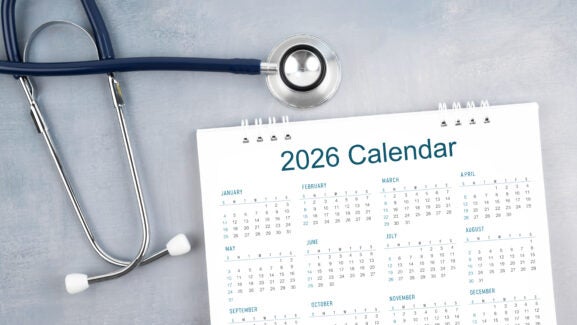
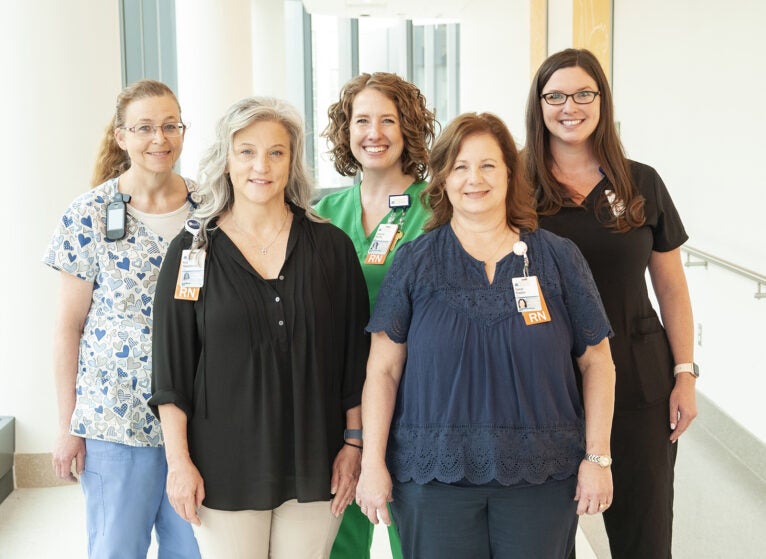
Engaging Initiatives Drive Quality Outcomes
Meet the Medical Intensive Care Unit (MICU) team reducing hospital-acquired pressure injuries (HAPIs) — while having some fun. Since assuming their new roles in 2022 — Kris Blackstone, Nurse Manager; Jessica McVey, Assistant Nurse Manager; and Sarah Kaplan, Assistant Nurse Manager, have been busy implementing an out-of-the-box approach to preventing HAPIs.
These strategies aren’t new to the MICU, but now they’re customized with memorable new names: HAPI Habits, Bottom Basics, Heel Deal, and Total HAPI-ness. “Since 2020, we’ve been focused on delivering all our evidence-based practice (EBP) prevention bundles at the frontline for the best care and the best outcomes for the patient,” explains Blackstone. “Each new focus is data driven and includes a component of team education and Patient Safety Risk Round Structure for monitoring, reporting, and escalation.”
Checks & Balances
The initial targets were catheter-associated urinary tract infections (CAUTIs) and central line-associated bloodstream infections (CLABSIs), but toward the end of 2022, three patients in a row experienced an ear probe injury when the ear probes being used to measure their oxygen saturation levels were not rotated properly. Soon after, a number of patients developed decubitus ulcers. These HAPI patterns across multiple patients spurred the MICU team to action, and they've been working collaboratively ever since to double down on the layered system of checks and balances they had in place since 2020:
- Rigorous use of the daily management board.
- Change-in-shift huddles for smooth handoffs.
- Streamlined patient safety risk rounds.
- An innovative digital “Bundle Board.”
Their Bundle Board system — which tracks prevention bundle tasks using green, yellow, and red visual cues — is being rolled out to the TCV-ICU (Thoracic and Cardiovascular Intensive Care Unit), PICU (pediatric intensive care unit), and surgical trauma intensive care unit (STICU), with plans for future organizational spread.
Making Fun a Best Practice
While staying true to these four practices is a meaningful part of improved quality in the MICU, it's not the whole story. In McVey’s words: “Our nurses are busy their whole 12-hour shifts, so it was on us to find a way to get them engaged. We decided we had to make it fun!”
They started with HAPI Habits. Blackstone remembers, “After identifying the ear probe issue, we scanned the entire unit and were astounded when we found 84 probes in 28 patient rooms.” It had become almost second nature for the nurses to use these probes instead of finger probes to monitor patients. Instead of just removing the probes — Kaplan, Blackstone, and McVey decided to turn this into a fun learning opportunity which has since led to a seamless transition to better practices.
The morning after removing the ear probes, McVey sent out a lighthearted email letting the team know Blackstone would be using ear probes this year to decorate her Christmas tree and that was the reason why all 84 ear probes had disappeared. McVey went on to explain how from then on, any time a patient needed an ear probe, a charge nurse needed to be part of the process to ensure best practices were followed. Since launching HAPI Habits’ ear probe focus, there has not been a single ear probe injury.
For the issue with sacral decubitus ulcers, McVey and Blackstone led impromptu demonstrations. “I pulled aside a nurse and demonstrated evidence-based prevention practices that would make a HAPI butt happy,” Blackstone laughs. “There were tons of jokes every time we did it, but that made it all seem less daunting and more memorable. We called it Bottom Basics.” After launching Bottom Basics, the MICU saw immediate results when adherence to related bundles jumped from 35% to 85%.
Learning From What Works
The success of these first two initiatives led to even more discovery. In the course of partnering with the HAPI coalition, the MICU team realized they had not been following best practice of when to apply heel foams and when to elevate heels. They have since launched the Heel Deal as a fun way to educate the team on risk factors and criteria to improve outcomes.
With the Heel Deal, it seemed like every area of quality improvement was covered, but there would be one more — aptly coined Total HAPI-ness. “We'd been focused on HAPI since November, but our latest efforts highlighted one area that we did not target previously, and that was having no more than three layers underneath the patient,” says Blackstone.
“If you have more than say a fitted sheet, a hover mat, and a hover pad — there’s an increased risk of a HAPI because of the decreased airflow from the mattress,” explains Kaplan, who admits that even she and others senior nurses who have been at UVA Health for years had been using more than three layers. With a review of the literature and retraining, compliance jumped from 31% to more than 70%. “We’re even hitting days in the high 80s and 90s now,” says McVey.
The collaborative spirit of all members of the MICU team has paved the way for success. “It’s been a team effort, including our unit-based leaders (clinical nurse specialists, Designated Charge Nurses, Management, HAPI Coalition and champions) as well as our direct care providers,” says Kaplan.
McVey credits Blackstone with starting everyone off on the right foot. “Kris’ passion for quality is what drove this,” she says. “There’s a temptation to say, ‘Well, we work in the MICU, so our patients are just that sick.’ But Kris helped us see that, while we can't change how sick these patients are, we can make meaningful changes to reduce risk and increase patient trust.”
Latest News


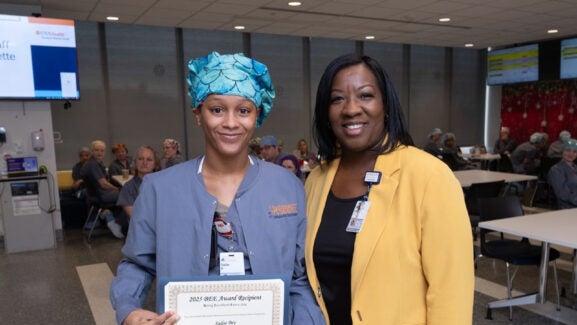
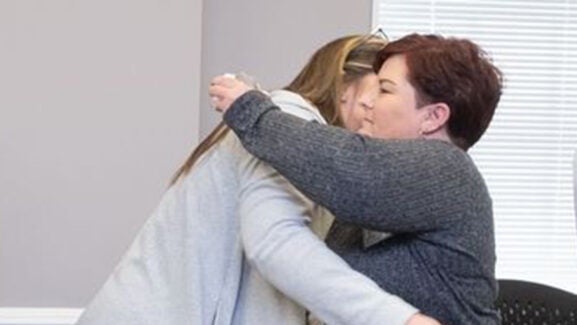
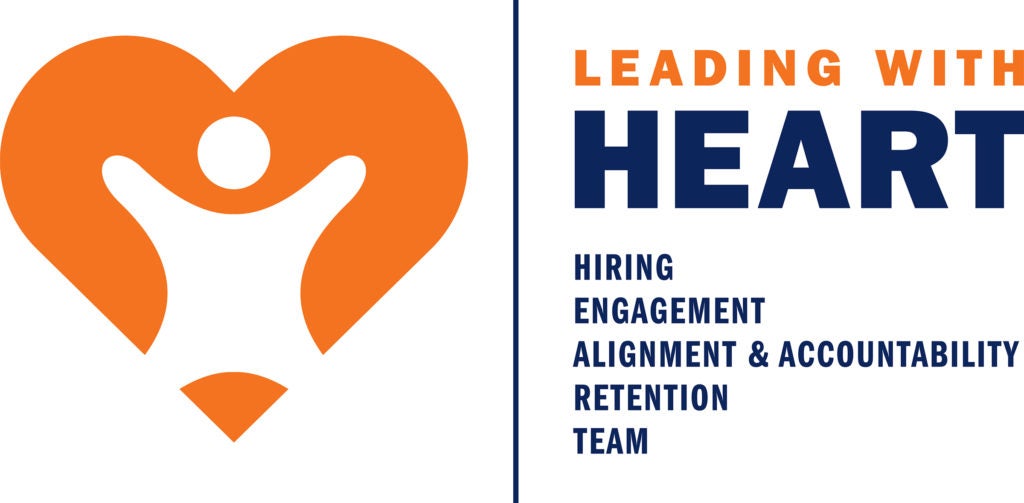
You all are the best! Creative ideas to improve patient outcomes.